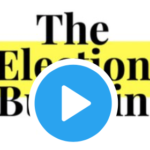Update 7am Friday
The Conservative party secured a decisive victory in Britain’s third general election in the past five years – presided over by a third Conservative prime minister in that time – and the first December election since 1923.
The broadcasters’ eagerly-anticipated exit poll (which doesn’t include Northern Ireland) at 10pm on Thursday night showed a big majority for Boris Johnson and the Tories, who went on to consolidate the comfortable working majority they need – around 80 seats, and likely the biggest since 1987 – to push ahead with plans to leave the EU. Indeed, the influence of the Brexit party may well have prevented an even bigger Tory tally. Remain campaigners are now left with the realization that there will be no second referendum, and nothing to hold the Prime Minister back after the country responded to his “Get Brexit Done” rallying cry.
In terms of how we think about Britain’s political parties, this election may well redefine modern Conservatism and prove as transformative as Margaret Thatcher’s victory over Michael Foot in 1983.
For Jeremy Corbyn and Labour, with a few results still outstanding, it could prove to be the party’s worst general election performance since before the Second World War. Mr Corbyn, who was comfortably re-elected in his Islington North seat, said he would “not lead the party in any future general election campaign” but insisted he would stay as leader “during a period of reflection and discussion.”
Speculation is already under way as to who might succeed Corbyn, and exactly when. Corbyn and John McDonnell, the shadow chancellor, are set to make a joint announcement later on Friday.
Looking for the tally of results from the UK election or how a constituency voted, here is the @FT interactive guide: https://t.co/GeaNjHjO8e
— Tony Tassell (@TonyTassell) December 13, 2019
In Northern Ireland, where more than 1.2 million people were eligible to vote, there were high turnouts in a number of key seats and some historic shifts in its 18 Westminster constituencies.
Calamitous night for the DUP:
💥King-making Westminster role gone & Irish Sea border coming
💥Commons leader & key strategist Nigel Dodds defeated by Sinn Fein in N Belfast
💥Lost unionist safe seat of N Down, having expected to win
💥Lost South Belfast
💥Brexit key to defeats— Sam McBride (@SJAMcBride) December 13, 2019
In North Belfast, Sinn Féin’s John Finucane scored a remarkable victory to unseat Nigel Dodds, the DUP leader at Westminster, by around 2,000 votes. It is the first time a nationalist has held the constituency.
Taking the stand after his win in North Belfast, Sinn Féin's John Finucane says it's a huge night.
He also takes a moment to remember his father, murdered solicitor Pat Finucane. pic.twitter.com/n2imExUp3S— BBC News NI (@BBCNewsNI) December 13, 2019
Sinn Féin’s Órfhlaith Begley held her seat in West Tyrone, while Paul Maskey held West Belfast. Francie Molloy was also re-elected in Mid Ulster and Chris Hazzard in South Down. Mickey Brady also won in Newry and Armagh.
There were two overwhelming victories for the SDLP; for Claire Hanna in South Belfast, while her party leader Colum Eastwood won impressively in Foyle, taking a bigger share of the vote than even John Hume managed.
In North Down, Lady Sylvia Hermon’s former seat, which had been a target for the DUP, Stephen Farry of the Alliance Party topped the poll. The DUP’s Jim Shannon held his Strangford seat, but with a greatly reduced majority; likewise in East Belfast, where Gavin Robinson held on in spite of a strong challenge from Alliance leader Naomi Long. Those two Alliance performances represented the party’s two largest vote shares in an Westminster election.
In safer DUP seats, Sammy Wilson was re-elected in East Antrim, likewise Sir Jeffrey Donaldson in Lagan Valley, Paul Girvan in South Antrim and Ian Paisley Jr in North Antrim, all with reduced majorities. Carla Lockhart won the Upper Bann seat vacated by the retiring David Simpson, while Gregory Campbell was returned in East Londonderry.
In Fermanagh & South Tyrone, after a full recount, Sinn Féin’s Michelle Gildernew defeated the UUP’s Tom Elliot by just 57 votes. The final result takes Sinn Féin’s total number of seats to seven, and marks an historic moment in Northern Irish politics, with more nationalists than unionists being returned in a Westminster election for the first time.
Political attention in Northern Ireland now turns to the fresh round of talks on restoring devolved government, which get under way on Monday and have been given a fresh impetus by tonight’s results.
SNP surge as Red Wall cracks
As much of England appears to be turning blue, in Scotland, the exit poll and early results suggest a surge for the Scottish National Party, with a high vote share likely to bolster Nicola Sturgeon’s case for a second independence referendum. Liberal Democrat leader Jo Swinson lost her seat in Dunbartonshire East, part of a bad night all round for the party.
The SNP took seats from both Conservative and Labour and Ms Sturgeon said she “would not pretend that every single person who voted SNP will necessarily support independence.” But she added that “Scotland has sent a very clear message – we don’t want a Boris Johnson government, we don’t want to leave the EU.”
In one of the evening’s first significant results, which proved indicative of the direction for the rest of the night, the Conservatives took the Blyth Valley mining constituency, which Labour had held since 1950. As Labour’s “Red Wall” cracked – including seats like Sedgefield, which former PM Tony Blair had once held with a 25,000 majority – the Tories made big gains in Wales; even in Wrexham, with Sarah Atherton being returned as Wales’ first-ever female Conservative MP.
And it seemed to be the night in microcosm when veteran Labour left-winger Dennis Skinner saw his Bolsover seat, which he had held since 1970, fall to the Conservatives.
John Crace writes at The Guardian: “It had been less of an election and more of an unpopularity contest. Boris and Corbyn were widely disliked and mistrusted throughout the country. All that had been at stake was which leader was hated the least. A race which Boris had won at a canter. No one expected him to deliver on the promises he had made, but they were less worried about that than the promises on which Labour might deliver.”
By the way, that 1923 election? It resulted in a hung parliament. As events unfolded across the country, there was no such possibility tonight.
"This truly has been a defining election for the UK. It marks the end of the country as an EU nation; the challenge facing the Tories is to stop it also marking the end of the country." – @robertshrimsley's @FT column https://t.co/ffjdtaW0TD
— Tony Tassell (@TonyTassell) December 13, 2019
"It's harrowing" – former Labour adviser Ayesha Hazarika blames Jeremy Corbyn for Labour performance adding "Corbynism has been tested to destruction," as exit poll indicates Tory majority
Live updates: https://t.co/feN65Kctaq #BBCElection pic.twitter.com/dwVbXc695k
— BBC Politics (@BBCPolitics) December 13, 2019
When the dust has settled, the most extraordinary element of this election will be how former mining towns replaced the party that had represented the workers’ movement for 100 years with the party that spent the last three decades destroying it
— Jonathan Lis (@jonlis1) December 13, 2019
Good morning! Here’s our @tortoise Election Night special edition of ‘Never Mind Ballots’ by @xtophercook and me. It’s a new dawn – isn’t it? https://t.co/zVujiEltM6
— Matthew d'Ancona (@MatthewdAncona) December 13, 2019
#GE2019: Results in pictures 📸https://t.co/R3R4CiLG2T #BBCElection
— BBC News (UK) (@BBCNews) December 13, 2019
The ultimate problem is not that politicians lied
It really isn't
The ultimate problem is that voters do not mind being lied to
Brexit, Trump, whatever
And until voters care about being lied to what happened today will happen again and again
— David Allen Green (@davidallengreen) December 12, 2019
Goodnight everyone. You can’t blame the electorate for an outcome. Tonight is what Britain is now. If people want to change it, they will need a meaningful, joined-up, well-led, broad-church opposition. Maybe tomorrow will be the start of that.
— Stig Abell (@StigAbell) December 12, 2019
 Background Reading (and Listening)
Background Reading (and Listening)
Issues or Identity? : ‘Making Sense of the 2019 General Election’ – 11 December
MPs From Northern Ireland Could Be Jeremy Corbyn’s Best Hope – 11 December
#GE2019 Raises Questions For Nationalism And Unionism – 7 December
A Republican Case Against Abstentionism – 8 December
The Death of the Conservative Party – 8 December
 Northern Slant/Queen’s Radio Election Bulletin Podcast:
Northern Slant/Queen’s Radio Election Bulletin Podcast:
The Written Campaign – 9 December
The Visual Campaign – 2 December
The Online Campaign – 25 November
Follow Queen’s Radio’s Head of News Michael Jardine on Twitter for more election night updates on the Northern Ireland seats.
Local Media Updates
We will bring you every result from Northern Ireland on @BBCNewsNI, with our own live page running from 9.45pm so keep across it for the v latest https://t.co/GcnKqF5Kl2
— Jayne McCormack (@BBCJayneMcC) December 12, 2019
A live results service and the best analysis in Northern Ireland – Belfast Telegraph will cover all the drama of election night as it unfolds. #GE19 pic.twitter.com/NlyyHtcz0p
— Belfast Telegraph (@BelTel) December 11, 2019
Lots of results in now. Check the latest and see the figures from your constituency as we continue our live coverage #generalelectionhttps://t.co/MFlQjIdscH
— The Irish News (@irish_news) December 13, 2019
It's a lively night tonight, with coverage of the UK elections from 10pm – 2am. Live updates as they happen from Belfast, other NI constituencies and Westminster…tracking a momentous time for contemporary politics in these islands @DevineDrKaren @dsmooney pic.twitter.com/edafztrQtE
— Late Debate (@LatedebateRTE) December 12, 2019
Finally…
Forget politics, this is the main reason to log onto Twitter today #dogsatpollingstations pic.twitter.com/fGUyDpaSU6
— smitch (@Smitch2015) December 12, 2019
